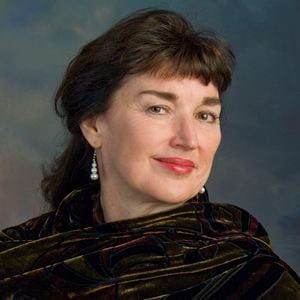By Devina Martinez
One day, Marie returned from the market to an empty home. She didn’t think much about her family being gone at first, but when the police showed up demanding she tell them her husband’s whereabouts, Marie began to worry. They brought her to the station where the police chief, a man with unchecked power, forced her to be his “girlfriend” in exchange for keeping her family alive. She needed to save herself, so Marie took money that she had found in the police chief’s room and escaped to the UK. Marie hasn’t seen her family in four years, and she has no idea if they are alive. Marie’s story is devastating, but with “50% of female refugees worldwide being women who traveled alone or with small children,” her story isn’t unique. So many women around the world are forced to leave their countries—fleeing for their lives—only to be denied asylum and sent back. Stories like Marie’s must be brought to light, and that is exactly what Fulbright recipient and SJSU English Professor, Cathleen Miller, set out to do.
In 2018, Cathleen received the prestigious J. William Fulbright Foreign Fellowship. The fellowship is an educational exchange program created to increase mutual understanding between the US and other countries. Participants are selected to study, teach, and conduct research in another country by their ability to demonstrate academic merit and leadership potential. Cathleen says, “I couldn’t believe it. I mean, I never thought that I would get it.” But with a career full of accomplishments, it’s no surprise to us that she was chosen for the fellowship. As part of her award, Cathleen traveled to England and served as the first Distinguished Chair of the Humanities at the University of Manchester from September 2018 through March 2019. Once in Manchester, she began her major project: to interview, profile, and share the stories of five refugees.
According to Cathleen, “Research has shown that we will remember stories when we have forgotten everything else. We forget the names, we forget the dates, we forget the places, but we remember the story.” She wanted people to hear and remember these refugees’ stories, which is why she sought to publish them and make them accessible around the world. After weeks of searching for a news outlet, Cathleen was amazed that Al Jazeera, an independent news organization funded by the Qatari government, wanted all five. “I just wanted to get these stories out there because they’re timely,” she says “I thought that they would just want one of the stories, but I was astonished when they wanted all of them.” The profiles were released individually from June 16-20, each marking a day in the United Kingdom’s Refugee Week. Cathleen knew that she wanted to do this project because many of her previous works revolve around the topic of women’s migration, such as Champion of Choice, a biography about UN leader Nafis Sadik, and Desert Flower, an autobiography co-written by and about, Somali nomad Waris Dirie.
The five stories are about the lives of Marie, Sohelia, Laila, Odachi, and Jenny. Jenny was the only male, and the only refugee to use his real name in the profiles. “He’s an incredibly charismatic person,” she says. “I wasn’t going to write about him at first because he was a guy, but he was one of the first people who was willing to talk to me.” Jenny was forced to flee his home in the Democratic Republic of the Congo because his activist work made him a government target. Unfortunately, after living in the UK for 12 years, he still has not been granted asylum. He fears that one day he will be sent back if the UK decides that it is safe for him to return home. Jenny is homeless but continues to run his activist network from the UK, organizing it from the library by day and a McDonald’s by night. In addition to telling his story through the profile, Cathleen pitched the idea of making a documentary about Jenny’s work to students studying film in Manchester, which Al Jazeera agreed to publish once complete.
Cathleen’s work is significant because it focuses on refugees who have fled for reasons that are often overlooked, such as domestic abuse and violence against women. “It’s important because it can change public opinion, it can change public policy, and it can change laws. People’s lives are at stake,” she says. “As writers, we can change the world. I’ve seen things change as a result of work that I’ve written. Laws changed that have protected women in 22 of the 28 African countries where female genital mutilation had been practiced. I’m sure that is saving lives and protecting girls.”
Her work goes hand in hand with the college’s current “Borderlands” project series. Many of the stories we see in these profiles are similar to the stories at the forefront of news today. Stories like Marie’s, Sohelia’s, Laila’s, Odachi’s, and Jenny’s tell of hardships that many people in the US are experiencing too. Cathleen says, “I’ve interviewed many people, and they had been through the same things, just on another continent.”
Each story is featured on the Al Jazeera website and can be found here: www.aljazeera.com. Cathleen hopes that these stories act as a platform to raise awareness of the very real obstacles that female refugees around the world constantly face. More of Cathleen’s work can be found on her website: www.cathleenmiller.info.
Also in 2018-19, Professor Victoria Rue received the Fulbright Scholarship where she shaped an oral history and ethnography of the people, particularly for the women of Bethlehem, titled Maryam: A Woman of Bethlehem. Visit her website for more info: http://victoriarue.com.


